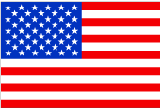What is a lien waiver?
Important
Author note: Log page changes in JIRA ILR board: https://procoretech.atlassian.net/browse/ILR-94
- The Answer on this page is being used as source content in the Payor Setup Guide.
- Content is being reused in the Payee User Guide.
Answer
A lien waiver is a legal document signed in exchange for payment that waives the signer's right to file a lien for the amount specified in the waiver. A lien is a legal claim filed by a contractor or supplier against the property. The property is used as collateral to satisfy the debt(s) to the downstream collaborator(s). See What is a downstream collaborator?
In the simplest terms:
- A lien protects a contractor or supplier from not getting paid.
- A lien waiver protects the property owner from a lien.
Example
An Owner-Builder acting as their own General Contractor on a job or a General Contractor hires you, the specialty contractor, to perform work on a construction project. As the specialty contractor, you possess the right to file a lien against the owner's property until the Owner-Builder or General Contractor pays you for your work. Any subcontractors or suppliers that you hire to perform work or deliver materials on the job site also have the right to file a lien against the property, which serves as collateral for the work and/or materials they provide. A lien waiver signifies that a contractor (a general contractor, a specialty contractor, a subcontractor, and/or a supplier) has released their right to file a lien against the property.
Common Questions
- Who provides a lien waiver?
- Why provide a lien waiver?
- What types of lien waiver templates can you create in Procore?
- How are lien waivers categorized?
Who provides a lien waiver?
In the United States, a signed lien waiver is typically provided by anyone working on a job site. This includes vendors who supply materials for a construction project and any specialty contractors or subcontractors who are not being directly paid by the property owner. With Procore Pay, a project's downstream collaborator(s) submit their lien waivers to the general contractor who is managing the project in Procore. Lien waivers are generated with the invoice that is submitted in the Project level Invoicing tool. See Create a Subcontractor Invoice.
Why provide a lien waiver?
On constructions projects, lien waivers provide these legal and financial protections to the contract parties:
- Upstream collaborators collect lien waivers from downstream collaborators to ensure liens won't be filed against the property owner.
- Downstream collaborators provide lien waivers to upstream collaborators to get paid.
What types of lien waiver templates can you create in Procore?
With Procore Pay, payors can create four (4) different types of lien waiver templates to use on their construction projects: Progress Conditional, Progress Unconditional, Final Conditional, and Final Unconditional.
Tip
How do you create a lien waiver template? See Create Lien Waiver Templates.How are lien waivers categorized?
Lien waivers are generally grouped into these categories:
Progress Waivers
A progress waiver is provided to the property owner by the downstream contractor(s) and supplier(s) with a progress billing. A progress billing is an incremental invoice submitted by a downstream collaborator to the upstream collaborator (see What is a upstream collaborator?). Progress billing helps to ensure that downstream collaborators get paid for work completed throughout a construction job, particularly on jobs that take years to complete.
Tip
When do I send a progress waiver to the property owner? If you are working on a longer job (i.e., more than a few months), downstream contractors generally provide a progress lien waiver to the property owner at the end of each billing period. Typically, invoicing is performed monthly. However, invoicing timelines can vary, depending on the payment terms in the contract.Final Waivers
A final waiver is provided to the property owner one time. Typically, at the end of the construction job, with a final billing. A final billing is the last invoice submitted by a downstream collaborator to the upstream collaborator at the end of a project.
Tip
When do I send a final waiver to the property owner? Downstream collaborators provide a final lien waiver at the end of the job.Conditional Waivers
A conditional waiver is sent to the property owner before payment. It indicates the downstream collaborator is willing to waive their lien rights on the condition of getting paid.
Tip
When do you send a conditional waiver to the property owner? In the United States, contractors typically send lien waivers every thirty (30) days. The common practice is to send the lien waiver when the invoice is issued.
Unconditional Waivers
An unconditional waiver is sent to the property owner after payment is made. It indicates the downstream collaborator is willing to waive their lien rights, even if they don't receive payment from the property owner.
Tip
When do you send an unconditional waiver to the property owner? In the United States, executing and processing lien waivers can take several months. The common practice for general contractors is to send lien waivers after being paid for their work by the owner. However, practices can vary.


